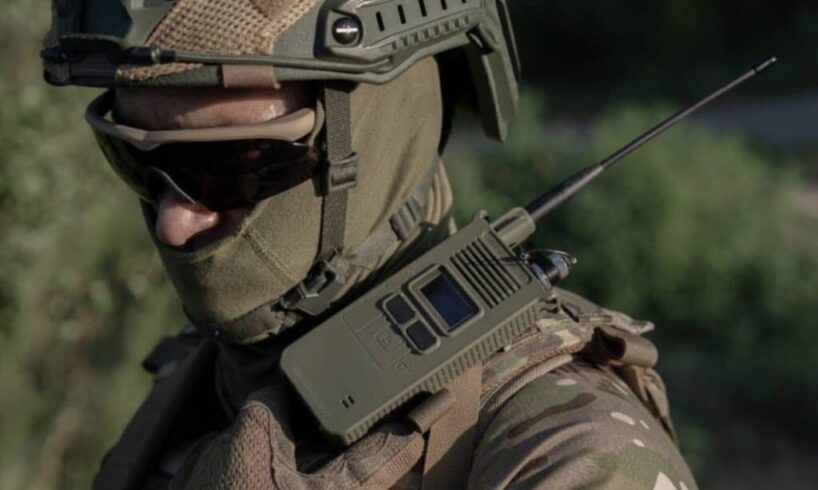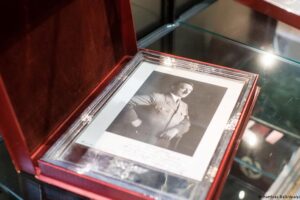
(function(w,q){w[q]=w[q]||[];w[q].push([“_mgc.load”])})(window,”_mgq”);
A European NATO country has purchased combat radios from Ukrainian startup Himera—technology forged in three years of combat against Russian electronic warfare.
The deal marks Himera’s first government contract with a NATO member state, which has requested anonymity.
The purchase shows Ukrainian defense companies breaking into Western supply chains with equipment proven under fire.
Himera’s radios were designed to survive the world’s most intense electronic warfare environment—an experience no Western contractor can claim. For two decades before Ukraine, US Air Force Special Operations operated “in largely benign electromagnetic combat environments” against insurgents lacking electronic warfare capabilities, The War Zone reported in May 2025.
What NATO bought
Himera conducted training for the European country’s military personnel and communications units. According to the company’s announcement, the systems earned high marks for low radio visibility, resistance to electronic warfare, ease of use, long battery life, and adaptability to modern combat conditions.
The Ukrainian company already supplies the US Air Force, delivering products in 2025.
The deals demonstrate that Himera is building a NATO customer base as President Volodymyr Zelenskyy pushes to unlock €150 billion in potential defense partnerships currently blocked by export regulations.
How a Ukrainian startup cracked NATO markets
Ukrainian manufacturers operating at 55% capacity struggle to access Western buyers, despite producing more weapons than Ukraine’s government can purchase domestically.
Export barriers are the main obstacle.
Himera, founded in 2022 by Misha Rudominsky and Oleksiy Oliynyk, raised $375,000 from the Ukrainian private investor club United Angels Network across two funding rounds in 2024.
However, the startup still needed creative solutions to reach NATO markets. In April 2024, the startup signed an exclusive agreement with Reticulate Micro to handle US market sales.
In February 2025, Himera partnered with Quantropi, a quantum-encryption company, which gained exclusive distribution rights in the US and Canada and rights to promote Himera products in select NATO countries.
The tech behind the purchase
According to Forbes Ukraine, Himera’s radios solve a basic problem: staying connected when the enemy is trying to jam your communications. They hop between frequencies and route around damaged units. The Quantropi partnership adds post-quantum encryption to prevent signal interception.
Co-founder Rudominsky told Forbes the radio meets NATO’s key need: “a reliable, EW-resistant, and quantum-secure radio at a competitive price.”
Ukrainian production costs—primarily salaries and energy—run significantly below Western levels, giving Ukrainian manufacturers a price advantage alongside their combat-proven designs.
Western militaries recognize Ukraine’s EW edge
Michael Monteleone, director of the US Army’s Assured Positioning, Navigation and Timing team, called the Ukraine conflict “a huge learning experience” in May 2024, saying Western systems are being tested against Russian electronic warfare in real combat conditions.
Ukrainian defense exhibitions consistently attract military officials and business representatives from NATO countries to examine weapons systems.
Each export or cooperation contract generates revenue to fund domestic production while proving that Ukrainian defense technology offers advantages beyond lower costs—it’s combat-tested against the world’s most intense electronic warfare environment.
A narrow window
The timing matters for Ukraine’s defense industry: European defense spending is expected to peak in 2025-2027, giving Ukraine roughly 18 months to position itself as Europe’s defense partner rather than just an aid recipient.
Himera’s growing NATO customer base—spanning North America and Europe—demonstrates that Ukrainian defense companies can break into Western supply chains when they find workarounds to bureaucratic barriers.
Most European NATO countries maintain anonymity about Ukrainian weapons purchases for political reasons, but the purchases are happening.
Read also
Ukraine’s army breaks own R&D rules to stay alive
Ukraine needs money for war, so it’s selling weapons to fund weapons
Ukraine built the defense industry of the future while fighting for survival
(function(w,q){w[q]=w[q]||[];w[q].push([“_mgc.load”])})(window,”_mgq”);




